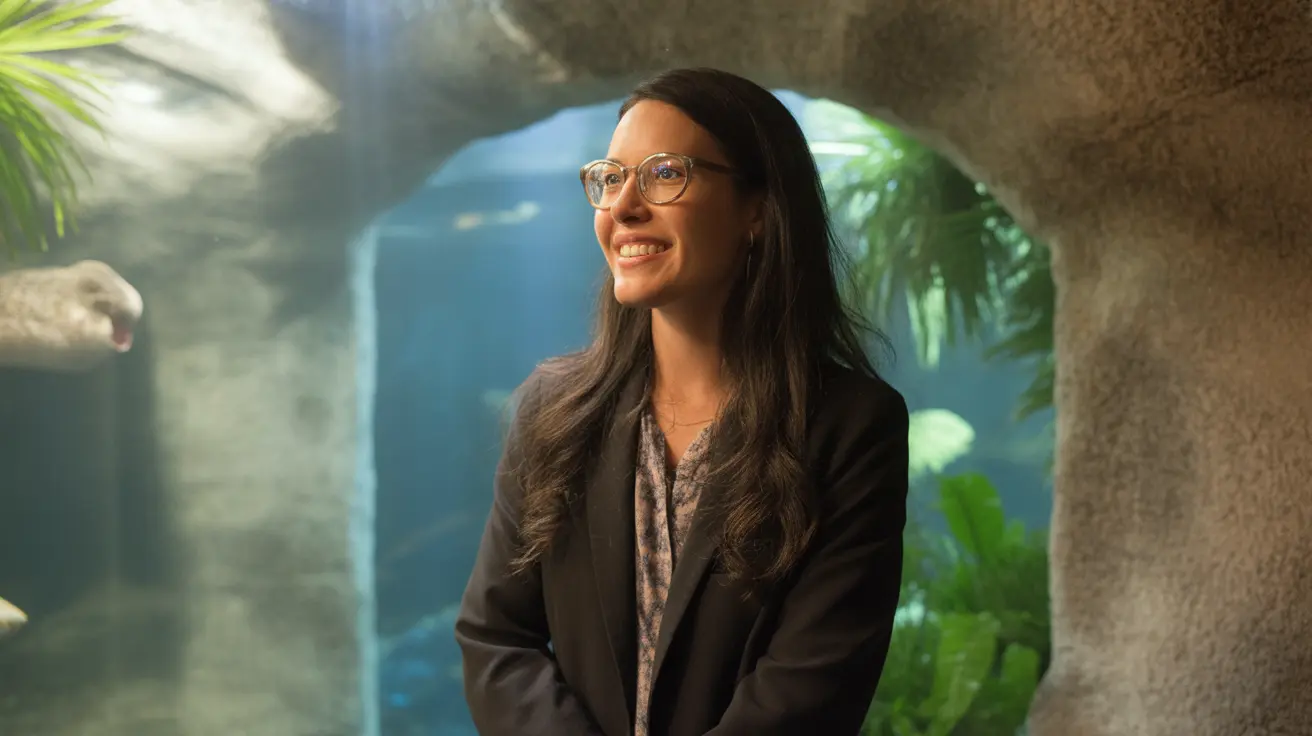The field of aquatic veterinarian medicine has gained another dedicated professional as Dr. Kelsey (Trumpp) Ryan, a 2019 graduate of Purdue University's Doctor of Veterinary Medicine program, recently joined the prestigious animal health team at Chicago's Shedd Aquarium. Dr. Ryan's appointment as an associate veterinarian represents a significant milestone in her career and highlights the growing importance of specialized veterinary care in aquatic environments.
Dr. Ryan brings impressive credentials to her new role, having earned her Diplomate status from the American College of Zoological Medicine (ACZM). This ACZM board certification represents the highest level of specialization in zoological medicine, requiring extensive training, examination, and demonstrated expertise in caring for non-domestic animals. Her journey to becoming an aquatic veterinarian demonstrates the dedication required to work with some of the world's most diverse and complex animal species.
The Critical Role of Zoological Medicine at Major Aquariums
Shedd Aquarium houses over 32,000 animals representing hundreds of species, making it one of the world's most comprehensive aquatic facilities. The complexity of caring for such a diverse collection requires veterinarians with specialized knowledge in aquatic animal care and marine mammal veterinary care. From tiny tropical fish to massive beluga whales, each species presents unique medical challenges that demand expertise in zoological veterinary medicine.
The veterinary team at institutions like Shedd Aquarium must understand the intricate physiological differences between terrestrial and aquatic species. Water quality, salinity levels, temperature regulation, and specialized nutrition all play crucial roles in maintaining animal health. This comprehensive approach to aquatic animal health ensures that each creature receives species-appropriate medical care.
Pathways to Aquarium Veterinary Careers
Becoming an aquatic veterinarian requires extensive specialized training beyond traditional veterinary school. Many aspiring zoological medicine specialists begin their journey through veterinary externship aquarium programs, which provide hands-on experience with aquatic species under professional supervision. These externships offer invaluable exposure to the daily challenges of aquatic animal care.
Following graduation from veterinary school, many professionals pursue a zoological veterinary residency to gain advanced training. These residency programs typically last three to four years and provide intensive experience in diagnosing and treating non-domestic animals. A veterinary residency program Chicago location, such as those available through institutions like Shedd Aquarium, offers unique opportunities to work with diverse aquatic species while contributing to conservation efforts.
Advancing Aquatic Species Medical Care Through Research
Modern aquarium veterinary hospitals serve dual purposes: providing exceptional animal care and conducting research that benefits wild populations. Veterinarians working in these facilities contribute to scientific understanding of aquatic species biology, behavior, and medical needs. This research directly impacts conservation efforts and helps improve aquarium animal welfare standards worldwide.
The work of a zoological medicine specialist extends beyond individual patient care to population health management and disease prevention. By studying captive populations, these professionals develop protocols that can be applied to wild conservation efforts, making their work crucial for species preservation.
Professional Development in Aquatic Veterinary Medicine
Dr. Ryan's achievement in obtaining ACZM board certification represents years of dedicated study and practical experience. This certification process includes comprehensive examinations covering anatomy, physiology, nutrition, reproduction, and medical management of non-domestic species. The veterinary training aquarium programs that support this certification ensure that specialists are prepared for the unique challenges of aquatic animal medicine.
For veterinary students interested in this field, early exposure through externships and research opportunities is essential. Building relationships with mentors in zoological medicine and gaining experience with diverse species helps prepare future veterinarians for the demands of aquatic animal care.
Frequently Asked Questions
What qualifications does an aquatic veterinarian need to work at a major aquarium like Shedd?
Aquatic veterinarians typically need a Doctor of Veterinary Medicine degree, followed by specialized training in zoological medicine. Board certification through the American College of Zoological Medicine (ACZM) is highly valued, requiring additional years of residency training, research, and comprehensive examinations covering non-domestic animal care.
How do veterinarians care for over 32,000 animals at Shedd Aquarium?
Aquarium veterinarians work as part of a comprehensive animal care team that includes biologists, nutritionists, and animal care specialists. They develop species-specific medical protocols, conduct regular health assessments, manage preventive care programs, and respond to medical emergencies while maintaining detailed health records for each animal.
What is the difference between a veterinary externship and residency in aquatic animal medicine?
A veterinary externship is typically a short-term experience (weeks to months) for students or recent graduates to gain exposure to aquatic medicine. A residency is a formal, multi-year training program that provides intensive, supervised experience leading to board certification in zoological medicine and the expertise needed to work independently as a specialist.
Conclusion
Dr. Ryan's appointment at Shedd Aquarium exemplifies the growing field of aquatic veterinary medicine and its vital role in animal conservation. Her journey from veterinary student to board-certified specialist demonstrates the dedication required to excel in this specialized field. As aquariums continue to serve as centers for education, conservation, and research, the expertise of professionals like Dr. Ryan becomes increasingly valuable for both captive animal welfare and wild species conservation efforts.
For aspiring veterinarians interested in aquatic animal care, Dr. Ryan's career path offers an inspiring example of how specialized training and dedication can lead to meaningful work protecting and caring for some of the world's most fascinating creatures.






